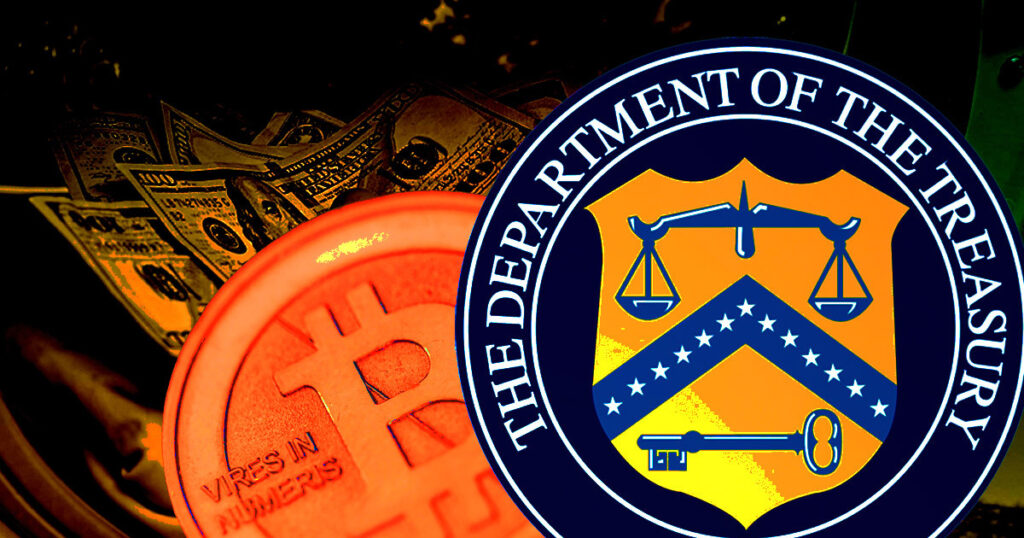U.S. Department of the Treasury has called on the public to provide feedback on the role of digital assets in facilitating illicit finance and how the regulator might curtail the associated risks.
On September 19 the Treasury announced the public feedback will guide its perspective in drafting a regulatory bill as requested by Biden’s Executive Order on crypto.
On March 9, 2022, President Joe Biden released an executive order that directed all federal agencies to draft cryptocurrency regulations that address six key issues, including consumer protection, mitigating illicit finance, and promoting U.S. leadership in the global financial system.
The executive order noted that the use of digital assets had given bad actors the leverage to easily engage in financial crimes related to money laundering, terrorism, fraud, and theft schemes.
The Treasury said it has worked with several government agencies to develop an action plan that seeks to mitigate the illicit activities. However, the regulator is open to collaborating with the public to develop a coordinated action plan.
Through this request for comment (RFC), The Treasury is requesting input from the public to understand its view on the emerging risks and what actions the U.S. Government and Treasury Department should take to mitigate them.
Interested members of the public are requested to comment on questions relating to
- How crypto might be used in illicit finance and the risk they pose.
- How the U.S. government might prevent criminals from misusing crypto assets.
- How the Treasury can partner with the private sector to combat illicit finance.
The Treasury also asked to know how blockchain analytics tools can help improve its AML/CFT compliance process and how it can curtail illicit risks should a U.S. CBDC roll out.
U.S. moves to regulate crypto
U.S. Federal agencies, including the Treasury, are gearing up to provide a coordinated action plan to regulate the crypto industry.
On September 17, The White House released its framework to address crypto regulation, crypto fraud, and the feasibility of developing a Digital Dollar.
Ongoing discussion in the U.S. Congress hints at plans to allow the Commodity Futures Trading Commission (CFTC) to regulate cryptocurrencies, especially Bitcoin and Ethereum.
SEC chairman Gary Gensler supported the motion, adding that he would give the CFTC greater control over the crypto market “as long as it does not take away power from the SEC.”

